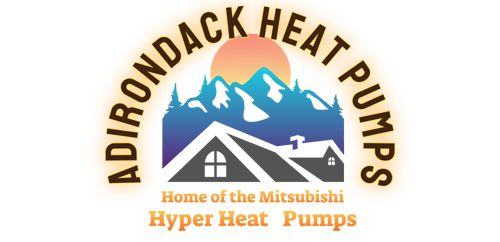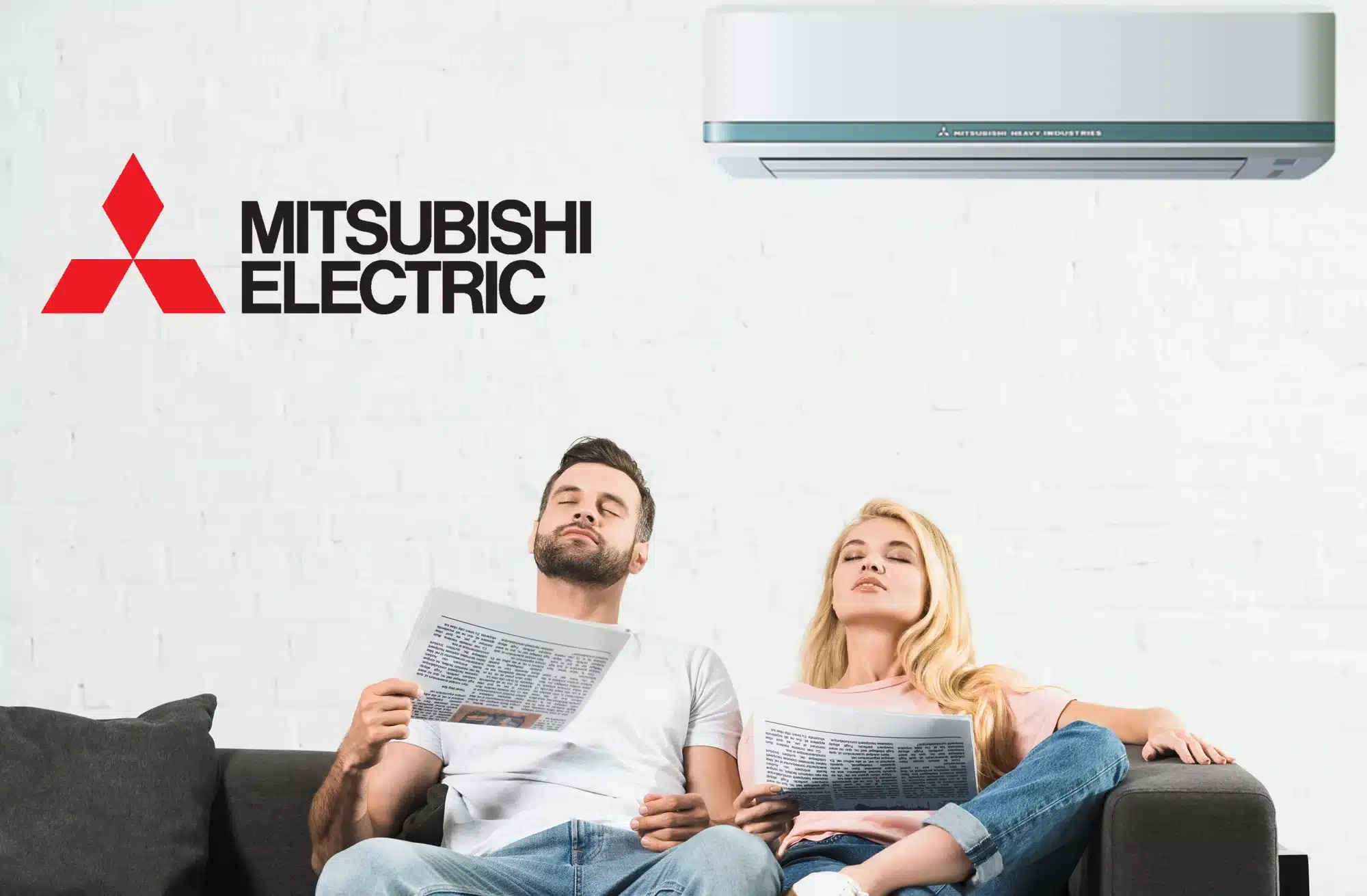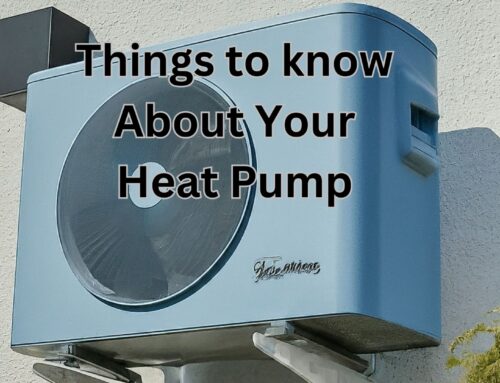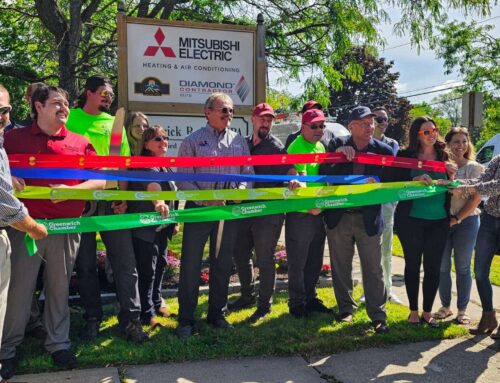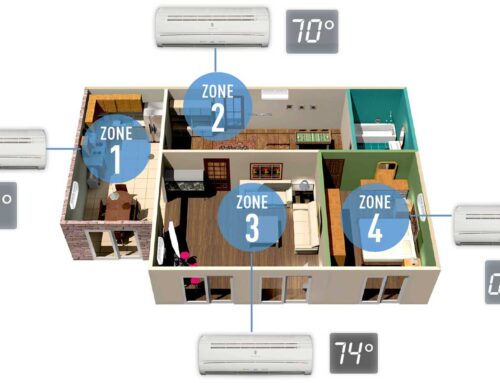Homeowners in Upstate New York are making a significant shift towards Mitsubishi heat pumps for their heating and cooling needs. This change is largely driven by the desire to reduce dependency on fossil fuels, lower energy costs, and embrace more sustainable and environmentally friendly solutions. In this article, we’ll explore why this trend is gaining momentum, the benefits of Mitsubishi heat pumps, and provide data and real statistics on their adoption and impact.
The Environmental and Economic Imperative
Fossil Fuel Dependency and Environmental Impact
The reliance on fossil fuels for heating and cooling has significant environmental repercussions. Burning fossil fuels releases carbon dioxide (CO2) and other greenhouse gases (GHGs), contributing to climate change. According to the Environmental Protection Agency (EPA), residential energy use accounts for about 20% of total U.S. GHG emissions, with a significant portion coming from heating and cooling.
Economic Considerations
Heating with oil, propane, or natural gas can be expensive and subject to price volatility. The U.S. Energy Information Administration (EIA) reports that fuel prices have been unpredictable, with spikes during winter months due to high demand. This volatility can strain household budgets, making it essential for homeowners to find more stable and cost-effective heating solutions.
The Rise of Mitsubishi Heat Pumps
What Are Mitsubishi Heat Pumps?
Mitsubishi heat pumps are advanced HVAC systems that provide both heating and cooling. They work by transferring heat rather than generating it, making them highly efficient. These systems are particularly effective in cold climates, thanks to Mitsubishi’s Hyper-Heating INVERTER® (H2i®) technology, which maintains performance even in sub-zero temperatures.
Efficiency and Cost Savings
One of the key benefits of Mitsubishi heat pumps is their energy efficiency. The Department of Energy (DOE) states that heat pumps can reduce electricity use for heating by approximately 50% compared to traditional electric resistance heating. Mitsubishi’s models have high Seasonal Energy Efficiency Ratio (SEER) and Heating Seasonal Performance Factor (HSPF) ratings, indicating superior efficiency.
Case Studies and Real-World Data
In a study conducted by the Northeast Energy Efficiency Partnerships (NEEP), homeowners who switched to heat pumps reported significant savings on their energy bills. For instance, a family in Albany, NY, reduced their annual heating costs by 30% after installing a Mitsubishi heat pump system.
Environmental Benefits
Reduction in Greenhouse Gas Emissions
Switching to heat pumps can lead to substantial reductions in GHG emissions. According to Project Drawdown, heat pumps are one of the top solutions for reducing carbon emissions. They estimate that widespread adoption of heat pumps could reduce CO2 emissions by 5.2 gigatons by 2050.
Supporting Renewable Energy Integration
Heat pumps are compatible with renewable energy sources like solar and wind. By integrating heat pumps with renewable energy systems, homeowners can further reduce their carbon footprint. The New York State Energy Research and Development Authority (NYSERDA) encourages this integration through various incentive programs.
Economic Incentives and Rebates
NYSERDA Incentives
NYSERDA offers rebates and incentives to encourage the adoption of energy-efficient technologies, including heat pumps. Homeowners can receive significant financial support for upgrading their heating and cooling systems, making the initial investment more affordable.
Federal Tax Credits
The federal government also provides tax credits for the installation of energy-efficient home improvements. As of 2024, homeowners can claim a tax credit of up to 26% of the cost of installing heat pumps, which significantly reduces the financial barrier to adoption.
Technological Advancements
Hyper-Heating INVERTER® (H2i®) Technology
Mitsubishi’s H2i® technology enables heat pumps to operate efficiently even at outdoor temperatures as low as -13°F. This advancement makes heat pumps a viable option for Upstate New York, where winters can be harsh.
Smart Home Integration
Modern heat pumps can be integrated into smart home systems, allowing homeowners to control their HVAC systems remotely. This integration not only adds convenience but also helps optimize energy use, further reducing costs.
Barriers to Adoption and Solutions
Initial Cost and Installation
While heat pumps offer long-term savings, the initial cost can be a barrier for some homeowners. However, the combination of state incentives, federal tax credits, and financing options can alleviate this burden. Local contractors and utility companies often provide financing plans to spread the cost over time.
Awareness and Education
Increasing awareness about the benefits of heat pumps is crucial. NYSERDA and local environmental organizations are actively working to educate homeowners about the advantages of switching to heat pumps through workshops, seminars, and online resources.
Conclusion
The shift to Mitsubishi heat pumps among homeowners in Upstate New York is driven by the need to reduce fossil fuel dependency, lower energy costs, and adopt more sustainable living practices. With the support of state and federal incentives, technological advancements, and the growing awareness of their benefits, heat pumps are becoming a popular choice for heating and cooling. This trend not only benefits individual homeowners but also contributes to broader environmental goals, making it a win-win solution for all.
References
- Environmental Protection Agency (EPA)
- U.S. Energy Information Administration (EIA)
- Northeast Energy Efficiency Partnerships (NEEP)
- Project Drawdown
- New York State Energy Research and Development Authority (NYSERDA)
- Department of Energy (DOE)
